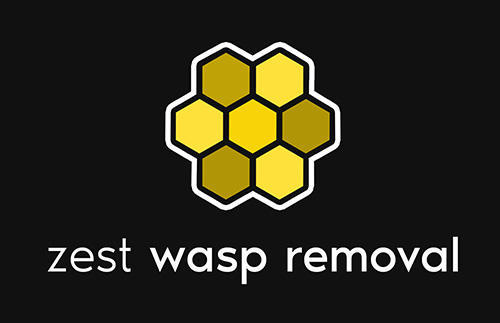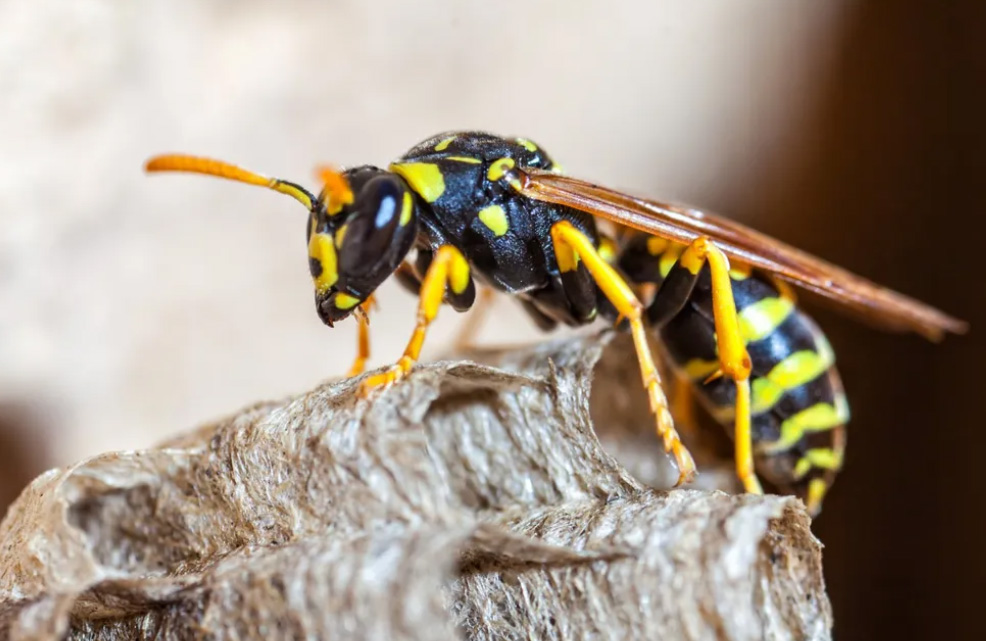Summertime often brings wasp infestations, leaving many homeowners perplexed on how to address the issue.
To assist you in warding off these pesky invaders, we have created a guide answering some of the most frequently asked questions about wasp removal.
Read further for all the most important information you need to know!
What’s the difference between a wasp and a bee?
Bees and wasps may appear similar, but they differ greatly in their behaviour, appearance, and habitat.
With a fuzzy exterior that collects pollen while feeding on nectar to help pollinate plants, bees are gentle creatures compared to the aggressive and territorial wasps with their smooth exoskeletons. Wasps hunt other insects as well as feed on sugary substances. They’re more likely to sting if provoked!
Are wasp stings dangerous?
Wasp stings can be a painful experience, bringing on swelling, redness, and itching. Generally, they’re not hazardous to most people unless you have an allergy. However, if symptoms like difficulty breathing, facial or throat swelling or rapid heartbeat are present after being stung then medical help should be sought right away.
How do I prevent wasp infestations?
Preventing a wasp infestation can be made much easier with the right steps. In the spring, inspect your property for any nests and promptly remove them. Keep trash cans tightly sealed to avoid tempting the insects with scraps of food or sugary drinks left out in open air.
How do I remove a wasp nest?
Removing a wasp nest can be hazardous, particularly for those with allergies to stings. It’s advisable to hire a professional but if you decide to tackle the job yourself, make sure you don protective gear and do so at night when the wasps are less active.
Use an insecticide spray specifically formulated for these nests and read the instructions carefully before beginning. Keep in mind that this process is not without risks; it requires caution as well as expertise to keep both yourself and others safe from harm.
Can I use natural remedies to get rid of wasps?
When it comes to wasps, natural remedies are not always the most reliable. In fact, they may even be hazardous to use. To ensure safety and best results, try using effective methods like setting traps or spraying insecticide – or better yet hire a professional pest control service for optimal removal of the pests.
How can I tell if I have a wasp infestation?
If you spot numerous buzzing insects around your property, hear an incessant humming from any particular area or discover a nest – it is likely that these are the culprits. It may seem daunting to take on such an issue, so contact a pest control specialist if you’re uncertain and need further assistance assessing the situation.
What should I do if I’m stung by a wasp?
If you are stung by a wasp, treat the area with soap and water, applying a cold compress to reduce swelling. Taking an over-the-counter pain reliever is also recommended for relief of symptoms. However, if any severe reactions occur such as difficulty breathing or face/throat swelling then it’s important to seek medical attention right away.
Wasp infestations can be a nuisance, but they don’t have to be a major problem if you take the proper precautions. Eliminating potential nesting sites, using traps and insecticide sprays, and hiring a professional when necessary, can all help keep wasps at bay. And if you do get stung, be sure to take the appropriate steps to manage the symptoms.

